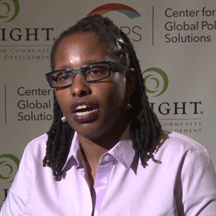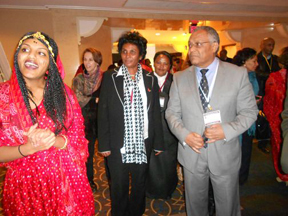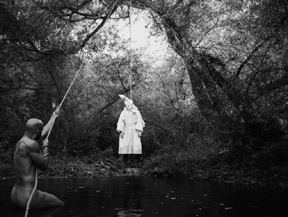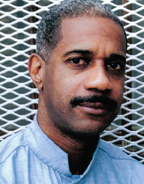 My hero, Dr. Martin Luther King, Jr., poignantly said, “Sunday is the most segregated day in America.” Even today, the most holy day in the United States remains the day when the races separate into their distinctive houses of worship for instruction, reflection, and repentance. Here at the Jessup Correctional Center, the Department of Public Safety and Correctional Services provides distinctive religious services, from Baptist and Muslim, to Catholic and Wicker.
My hero, Dr. Martin Luther King, Jr., poignantly said, “Sunday is the most segregated day in America.” Even today, the most holy day in the United States remains the day when the races separate into their distinctive houses of worship for instruction, reflection, and repentance. Here at the Jessup Correctional Center, the Department of Public Safety and Correctional Services provides distinctive religious services, from Baptist and Muslim, to Catholic and Wicker. The best attended services are Apostolic and reflect the preferences of the population, which is largely African-American. Catholic and Reformed services consist mostly of White inmates.
The Millennial inmates, who are among the 87-million Americans born from 1982 – 2001, do not regard race as an issue as much as the older inmates. They are more open than the older residents to mingling with every race, whether it is in the recreation room, outdoor sports field, celling together, and even attending religious services.
All Millennials are not Christians, but they offer some hope, maybe even divine hope, that more of America, with or without church leadership, will be race cancer free.
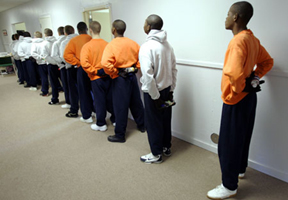 I believe that Millennials are struggling to be post-racial. Many of them view the Civil Rights Movement as their parents’ and grandparents’ struggle. A recent Pew Research poll says, “Millennials are the most racially tolerant of any recent generation.” The same research also revealed that 93% of Millennials are for interracial dating.
I believe that Millennials are struggling to be post-racial. Many of them view the Civil Rights Movement as their parents’ and grandparents’ struggle. A recent Pew Research poll says, “Millennials are the most racially tolerant of any recent generation.” The same research also revealed that 93% of Millennials are for interracial dating. Millennials generally admire the same icons and have no problems with it. They are more likely to share an affinity for the same sports heroes and entertainers. Millennials are more likely to joke about someone’s age rather than their race. Maybe integration has accomplished some good, after all the children of the integrated generation helped elect the first African-American president.
But America as a whole has a cancer called racism and it continues to affect every aspect of our lives including how we worship. Much of the segregation is a symptom of racism; some of it is not.
Churches are rarely explicitly segregated by race. Segregation occurs in a quiet, defacto way through social pressures and often the need to not face the unexpected. Psychologists use the term homophily, which means a deep seated preference to be associated with people who look, think, and sound like themselves.
Howard Ross, a business consultant and author of Everyday Bias, states, “We’re drawn towards each other because we feel very comfortable with people like ourselves, because we kind of know what to expect.” The separation of the races is partly the product of cultural upbringing.
While all segregation is not the result of racism, America’s cancer is not in remission. The issue of race relations in America is once again front and center partially with the eruptions in Cleveland, Baltimore, New York City, Ferguson, and elsewhere. If anyone believes that racism is an antiquated issue, that person needs only to google the phrase to learn that the issue remains significant. And, it is time for the church to act.
My favorite 18th century biblical writer, Mathew Henry, puts it succinctly, “When Christians unite in love and charity, it is the beauty of their profession that invites others to join with them.” All Millennials are not Christians, but they offer some hope, maybe even divine hope, that more of America, with or without church leadership, will be race cancer free.









